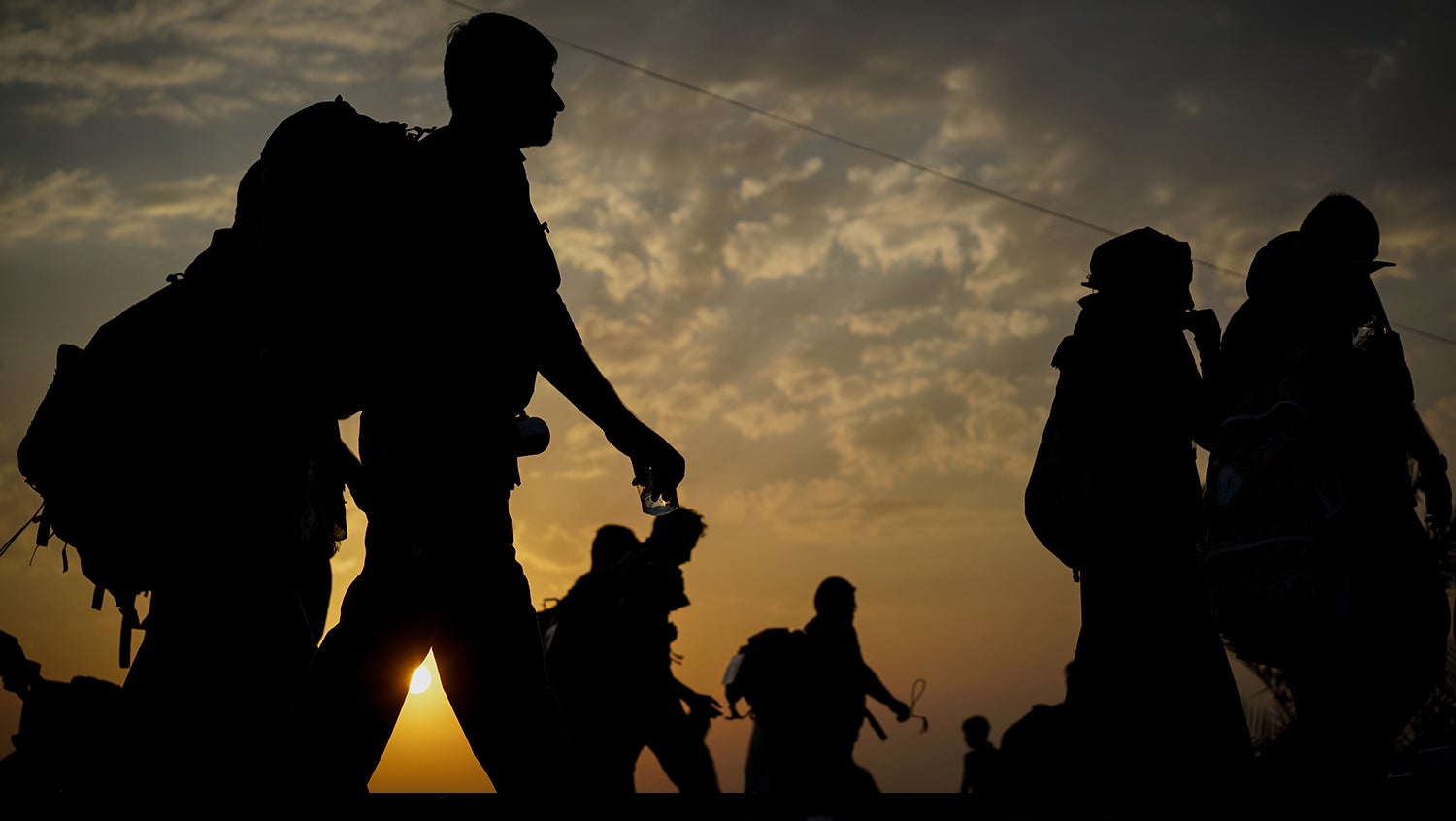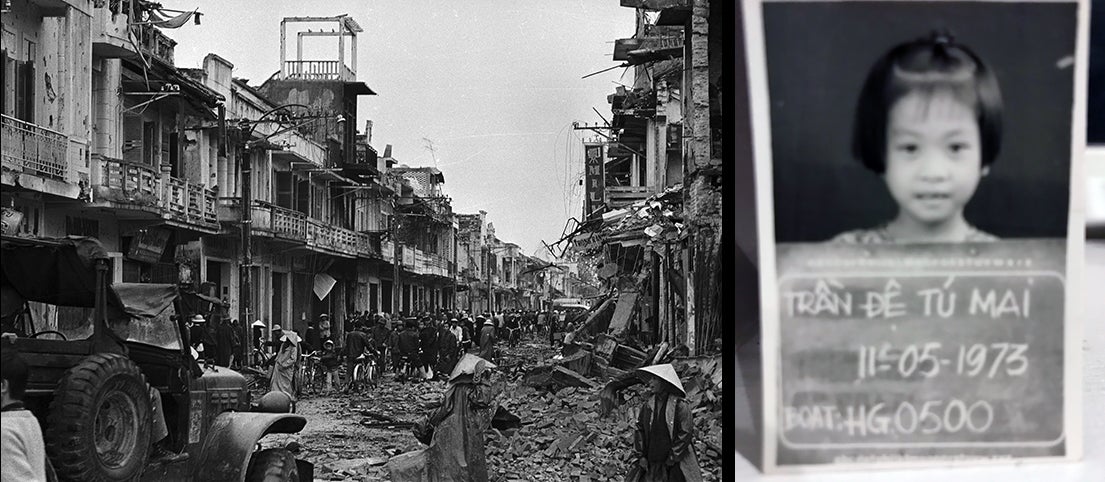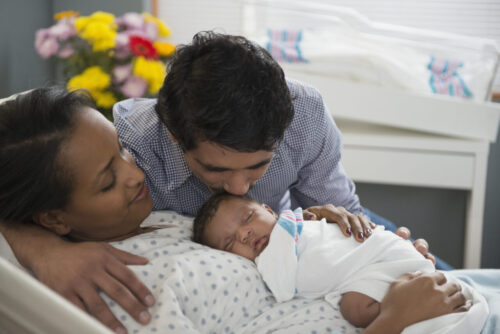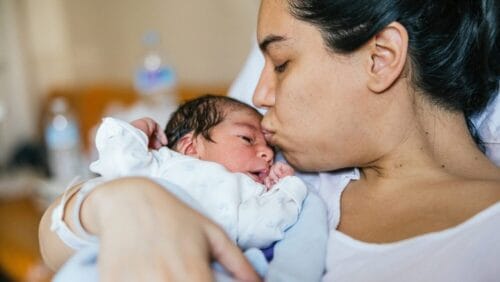From Refugee to Medical Director: A Call for Compassionate Policy and Action
June 20, 2020

Getty Images
As recent months have shown, global responsibility for the health of all people extends beyond man-made borders.
“Take a drink quickly!” My lips barely touched the water pail, getting a few drops of water before the person to my right grabbed it from me. We had been on the open ocean for what seemed like months, but realistically, only a few weeks had passed since we had escaped Vietnam in 1978 through the southern delta following the fall of Saigon. I was four years old. Nobody told me where we were going.
A year after washing up on an uninhabited island in Indonesia, a generous family and their synagogue sponsored my family’s move to the U.S. Landing mid-winter in inner-city Chicago after a life in tropical Asia was certainly a test of our endurance, in many senses of the word, but what held us strong and determined were the strangers who extended helping hands. During my very first Christmas, for example, the local Salvation Army gave us second-hand winter clothes and a new toy, which meant the world to a 6-year-old girl from war-torn Vietnam, as did any small gesture of warmth. The moments where I received a smile, an inquiry of “what is your name?” or a fun suggestion of “let’s play ball” all helped me start to build a home.
I have survived much and been given opportunities that others were not so fortunate to receive, and in turn I have done what I can to give back. Today, I am a family medicine physician and the medical director of the department at a large academic medical center in Boston. As part of my job, I’m fortunate to provide medical care for refugees. And while my life looks very different today, the memories of the incessant sea-sickness, the panic when food and water were gone, and the dark unknown still come flooding back when I hear the countless stories, whether in my exam room or on the news, of refugees from Syria and Northern Africa, and more recently El Salvador, Honduras, and Guatemala, departing their homeland in hopes of finding something better, only to be lost at sea or kicked out of their new countries.

These memories motivate me. I was one such refugee. I am a Refugee. I am a reminder that every human matters regardless of their race or nationality. Those of us who have left our homes, loved ones, and livelihoods to risk life and limb do so only because there are no viable alternatives. Refugees are the casualties of religious and ideological conflicts embarked on by only a few individuals with power. The tens of thousands of migrants and refugees do not choose war, persecution, propaganda, and bloodshed. What they can choose is to risk it all for a small chance that hard work will unlock greater potential for future generations. My parents, who chose to escape Vietnam in the darkness of night without telling their family, once remarked that their lives have been fated, but mine and my two siblings’ had yet to blossom.
Those of us who have left our homes, loved ones, and livelihoods to risk life and limb do so only because there are no viable alternatives.
This country has built its global core identity as one of inclusion. It claims to take you in, nourish you, and embrace your uniqueness. It is because of this unconditional love that most immigrants like myself strive to pay it back. My decision to dedicate my life’s work to caring for others as a family physician stems greatly from my desire to return the kindness of the people who helped our family when we had nothing to give in return except our thanks.
As a family physician, I’ve worked with the marginalized, unserved, and underserved in the inner cities of Los Angeles, Trenton, and Boston. I spend tireless hours and energy providing medical care and chasing funding for patients’ medication and services. Obtaining insulin for an undocumented Mexican day-worker who couldn’t afford it, engaging a 14-year-old girl to accept a contraceptive device to prevent an unwanted pregnancy, or guiding a grieving family to find solace with the passing of a loved one are all triumphs I cherish, made more enriching because I carry with me the reminder that so many others have spent tremendous effort on my behalf.
Since President Lyndon B. Johnson signed into law the Immigration and Nationality Act of 1965, over 60 million immigrants and refugees have made a home in the U.S. Arguably, the United States of America owes its greatness to the diversity of its people, the many immigrants that have enhanced its society through art, culture, and innovation. But that greatness is being threatened by current government policies that are based on intolerance and exclusivity. The generous spirit of benevolence and equal opportunity is what makes a proud American.
We are a global society with responsibilities that reach beyond man-made borders
As the pandemic has shown, today, we are a global society with responsibilities that reach beyond man-made borders. Facing the current massive refugee crisis — and newly the ways that COVID-19 has restricted migration — physicians, policymakers, and community stakeholders must call for the U.S. and the greater global community to mobilize urgent action and assistance. Instead of shutting down our borders, turning away those who seek safety, we should take hold of this time to extend our generosity to those in need, whether through resources, policy, or compassion. This the is moment where we should stand strong as a people, as parents, as brothers and sisters and as humans to do the moral right thing.
I share my story to encourage people and governments to embrace and encourage immigrants and refugees in our societies. Like so many other refugees’ stories, I’ve shown with my life that investment in immigrants produces dedicated citizens with strong work ethics and deep conviction to pay back and contribute to the richness of any society. As a physician, and as a global citizen, my doors are always open.


